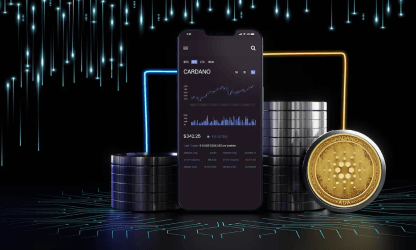Derivatives offer a means of risk management through hedging against changes in prices. They enable traders to amplify their position size with a relatively smaller investment, providing leverage. Moreover, derivatives grant access to a diverse array of markets, encompassing commodities, currencies, and interest rates. They present the potential for gains in both upward and downward-trending markets. Additionally, derivatives contribute to liquidity for investors, as they can be readily bought and sold on the market.
Navigating the Psychology of Trading Harnessing Your Mental Strength for Financial Gain
Guiding Through Trading Challenges: Identifying Common Mistakes and Implementing Preventive.
Trading Pitfalls Steer Clear of Common Mistakes with Preventive Measures
In the realm of trading, it's crucial to navigate with caution to avoid common pitfalls jeopardize.
Trading Platforms: Tools for Success in Financial Markets
Trading in financial markets involves a wide employ to make informed decisions.

Options vs Futures Grasping the Dynamics of Derivatives Trading
Delving into the intricacies of derivatives trading involves a understanding of options futures.
The Trading Mindset Emotions and Decision-Making
Successful traders understand the delicate balance required to navigate the highs and lows market.
Swing Trading Secrets: Profiting from Market Swings
The Trading Mindset Emotions and Decision-Making paragraph.



Do you have any question
In India, the trading hours for the derivative market vary depending on the exchange and the instrument being traded. Generally, the trading hours for the equity derivatives segment are from 9:15 am to 3:30 pm on weekdays.
To engage in futures and options trading through LKP Securities, it is necessary to initiate the opening of a trading and demat account with the company. Upon successful account establishment and funding, you gain the ability to execute orders using their trading platform or mobile application. Additionally, you have the opportunity to avail yourself of research reports and market insights provided by LKP Securities, aiding you in making well-informed trading choices.
The margin requirements for derivative trading differ based on the specific exchange and broker. Margin refers to the funds that traders must deposit in their trading accounts to mitigate potential losses. In the Indian context, the margin needed for futures trading generally hovers around 10-15% of the contract value. On the other hand, in options trading, the margin requirement varies based on factors such as the strike price and the volatility of the underlying asset.
Commodity futures are agreements that enable traders to purchase or sell commodities at a pre-established price and date. Currency futures involve contracts enabling traders to buy or sell currencies at a predetermined price and date. Index futures pertain to contracts allowing traders to buy or sell a collection of stocks constituting an index at a predetermined price and date.
Futures and options trading both carry inherent risks due to their reliance on leverage and the possibility of financial losses. Nevertheless, options trading is often perceived as riskier, given the added factors of time decay and the necessity for precise forecasts regarding market direction and timing.
Leverage is a key feature of futures and options trading, enabling traders to amplify their positions with a smaller initial investment. Diversification is achieved through futures and options, offering access to a broader spectrum of markets, encompassing commodities, currencies, and interest rates. Risk management is facilitated through hedging against price fluctuations. Additionally, flexibility is a notable aspect of futures and options, allowing for versatile trading strategies that can capitalize on both upward and downward market movements.
Certainly, to participate in Futures and Options (F&O) trading, it is imperative to possess a trading and demat account. Additionally, compliance with margin requirements is essential for engaging in F&O transactions.




